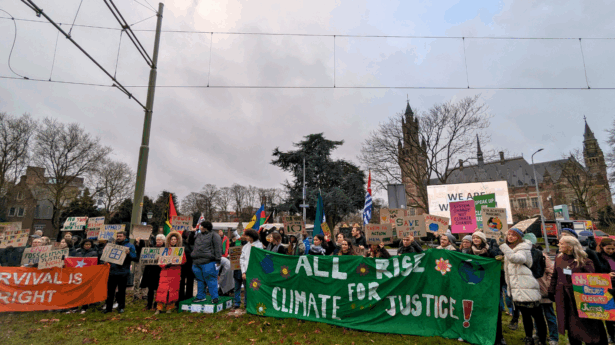The Unitarian Universalist Service Committee advances human rights through grassroots collaborations.
July 29, 2016, Rights Reading
July 29, 2016
Our weekly roundup of what we’re reading: a few select articles from the front lines of human rights that we don’t want you to miss.
1. “Refugee Crisis Requires Cross-border Response,” Peter Gyves & Pat Murphy, Opinion/Commentary, San Diego Union-Tribune, July 28, 2016
“In countries as generous and compassionate as ours, we ought to stand up for the right of every human being to be able to live without fear and violence.”
This opinion piece from a major U.S. city just 15 miles from the Mexican border offers new insights into how the Central American refugee crisis is changing, and not for the better. Even though the Mexican government recently opened additional shelters for refugees seeking asylum through the San Ysidro and Otay Mesa border crossings, new policies by both the Mexican and U.S. governments, plus the economic realities of South America, are creating what the authors describe as “the beginning of what could become one of the greatest tragedies in recent years.”
The U.S. Supreme Court’s 4-4 deadlock on deferred deportees means that four million of these undocumented people cannot stay in the United States; many of them will be sent back to Mexico. And the Mexican government’s efforts to bring refugees “standing in line” at the U.S. border to new shelters is woefully inadequate. After a stay of several days, these refugees are being sent to existing shelters like Casa del Migrante in Tijuana without any arrangements or even advance notice to these shelters.
Pat Murphy, co-author of this commentary, is a Catholic priest and director of Casa del Migrante – Centro Scalabrini, one of the overcrowded shelters in Tijuana. He also notes that, in addition to the recently deported Mexican citizens his shelter traditionally serves, a new population including Haitians who migrated to Brazil after the earthquake, and others so eager to cross the border into the United States that they remain on the streets, destitute and homeless, without blankets, food, or money. Despite their hope, their chances of being admitted to the United States are slim and most will be sent back.
Murphy and Gyves call for more resources from the Mexican government, and more advocacy for refugees from the United States. “In countries as generous and compassionate as ours, we ought to stand up for the right of every human being to be able to live without fear and violence,” they write.
Read more about UUSC partner organization Casa del Migrante – Centro Scalbrini and its work on behalf of Central American refugees here.
2. “Protests in Burundi after U.N. Decides to Send Police,” Al Jazeera, July 31, 2016
In the face of mounting violence between representatives of President Pierre Nkurunziza’s government and the opposition, the United Nations last week voted to send 228 police to the Burundi capital of Bujumbara and other cities in a largely symbolic action. According to Al Jazeera’s Daniel Lak, “The ability of 228 police officers who are basically monitoring human rights and helping build capacity and reporting back to headquarters – they’re not really going to be able to do much to stop violence. But it is a symbolic move by the Security Council. They’ll be telling the world what’s going on there, and that’s the key – the international community is back in Burundi.”
Still, 1,000 demonstrators loyal to President Nkurunziza, who ran for and was re-elected to a third term which his opponents claim violates the country’s constitution, objected to what they claim is the United Nations’ lack of respect for Burundi’s sovereignty. They marched on the French embassy to object to that country’s role in drafting the U.N. resolution authorizing the deployment of police to Burundi, and also on the Rwandan embassy, accusing their neighbor nation of “training Burundi rebels.”
To date, this most recent outbreak of violence has cost an estimated 450 lives. Samantha Powers, U.S. Ambassador to the United Nations, calls for more than the symbolic police deployment. “Police are not being deployed to protect civilians, even though civilians are in dire need of protection. That should embarrass us.”
Through its partner organizations in Burundi, UUSC has been active in providing access to safe housing and necessary supplies to vulnerable people to survive the unrest since violence broke out in advance of the July 2015 presidential election.

